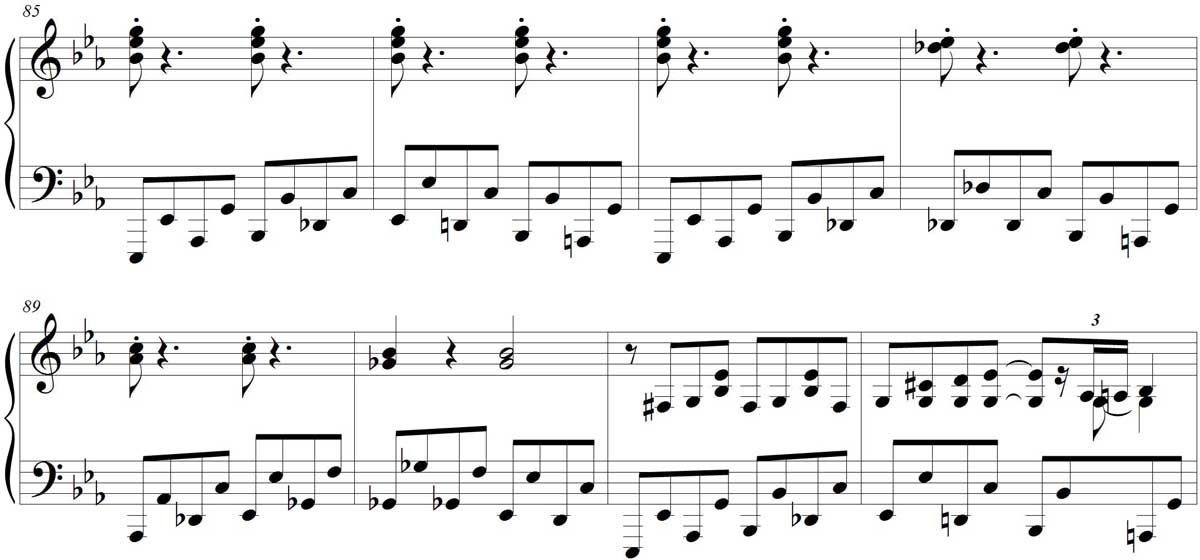James ‘Stump’ Johnson, whose nickname was given to him because of his short stature, was another able pianist who recorded only one piano solo, Bound to Be a Monkey, during the classic blues era. While it is primarily an instrumental, there are two brief places with singing, the first at the beginning by an unidentified woman: “I can tell by your shape that your mammy was an ape, so you’re bound to be a monkey man.” Despite any perceived racial implications, in this case the term ‘monkey man’ referred to a male who was weak and subservient to women. The tune that is sung with these words is a familiar one and also appears in the piano roll of Gin Mill Blues by Lemuel Fowler as well as Whole Soul Blues by Papa Egg Shell. In both of those cases, like Bound to Be a Monkey, the tune appears only once and thus is obviously a musical quote. The same melody does appear twice in Henry Brown’s Stomp ‘Em Down to the Bricks, played by guitarist Lawrence Casey. So far I have not been able to discover source of this tune. If anyone recognizes it please let me know!
The second sung part of Bound to be a Monkey is by Johnson: “Listen there folks, fall in line, while I play this good ragtime.” This is sung despite the fact that Johnson’s playing does not resemble ragtime at all. Johnson’s style in Bound to Be a Monkey is close to boogie woogie with a nearly constant walking bass. However, this walking bass has an individual touch in that most of the time it alternates between octaves and sevenths.

The only examples of left hand technique that I have come across with a similar sound are later recordings by ‘Cow Cow’ Davenport, after he had lost most of his playing ability in his right hand, such as Cow Cow’s Stomp. Similar to that recording, Bound to Be a Monkey has a very sparse right-hand part, even though Johnson’s right hand was apparently quite able as shown in other recordings. Davenport’s ability when Bound to Be a Monkey was recorded, in 1929, was not yet impaired so his peculiar playing style due to his injury could not have yet been an influence. Perhaps we have to consider that Johnson could have been an influence on Davenport’s later style.
Johnson made a couple of short piano solo recordings late in life that were included on the Biddle Street Barrelhousin‘ album from the Delmark label. These are fragmentary in nature and not recorded under the best conditions (you can hear talking and dishes clanking in the background), but are still interesting.
Most of James ‘Stump’ Johnson’s recordings can be found on James “Stump” Johnson 1929-1964 from Document Records.